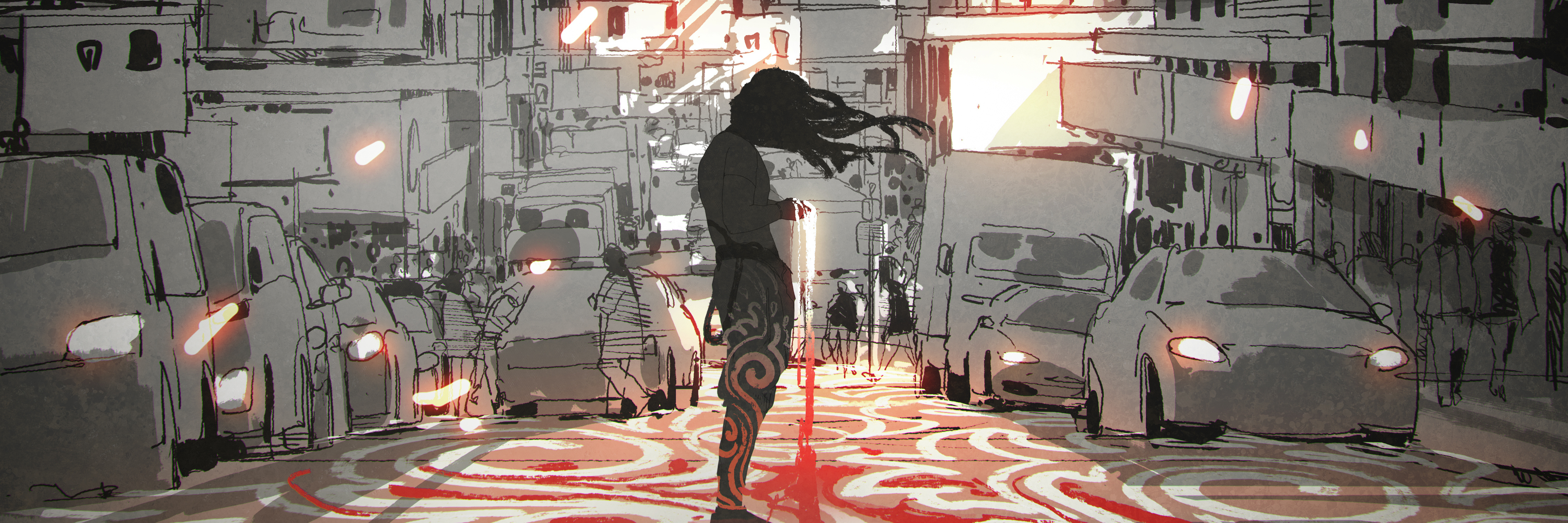It’s strange that one of my friends saw it before I did. Despite my well-placed poker face, she has always been the one to see that I wasn’t OK, even when I didn’t know it myself. At the time, I talked her out of the diagnosis. Certainly, my experience represented “trauma,” for me, but I thought post-traumatic stress disorder (PTSD) was going a little far. After all, I chose to stay in the situation I was in, as did many others. I know some of them have mental health struggles too, but it is still too easy to blame myself for being weak.
Major depression… I accepted that label a long time ago, but PTSD, that just couldn’t possibly fit me. I didn’t survive assault or a severe accident. I’m not a veteran. Yet, a licensed professional is telling me I fit all the diagnostic criteria without me even bringing up the possibility of it.
The first reason I am afraid to admit I have PTSD is I’m afraid I don’t deserve the label. It feels like I’m cheapening the hardships that veterans and rape survivors experience as they pursue recovery and deal with severe trigger reactions. I fit all the diagnostic criteria, but I don’t have night terrors or trigger reactions serious enough for others to notice. It feels like I can’t compare to symptoms like these.
My symptoms show up primarily as an internal response, sometimes to an identifiable trigger and sometimes to nothing at all. I feel like I can’t breathe, as if something heavy is resting on my chest and restricting my access to air. I can feel myself internally panicking, even though I can’t identify a reason why. Sometimes when it gets really bad, it can feel like I’m dying, even though I can logically recognize I’m not. I feel unsafe, for no apparent reason. I feel useless. Worthless. Invalidated.
Invalidated from the insidious abuses and hurts I experienced over the course of time and circumstances that triggered my depression and PTSD.
I also very deliberately avoid places and people related to that time period. Even someone who looks like someone I knew can trigger my internal response. Emails from certain individuals hurt me. I refuse to go to the city I lived in at that time. I did not want to go back for graduation. I refuse to even live in that state in the future.
But, my symptoms aren’t obvious. They look like a bad attitude or a quiet personality.
Another reason why I’m afraid to admit I have PTSD, is I don’t think people will believe me. Others’ knowledge of PTSD rarely extends beyond veterans or one occurrence of intense trauma.
The causes of my PTSD are more subtle, built up over time — perhaps emotional abuse — but not in the typical sense of the phrase. There is no one person to blame. There are many and I presume most of them had good intentions. There is no one intense experience I can point to, although there a few moderately hurtful experiences I can describe. I suspect some discrimination, but would have difficulty proving it. I was judged and hurt, but quick to blame myself for any wrongs. Perhaps worst of all was no one stepping in to help when it got bad.
My PTSD developed in everyday life. The circumstances are not that unfamiliar or abnormal, though the level of emotional and psychological stress I was exposed to probably was.
The last reason I am afraid to take on the label of PTSD is I’m afraid it means I’m weak. Someone else who experienced “real trauma” might be strong. But because other people made it through similar circumstances without developing PTSD, I feel like I am overly sensitive or not resilient enough.
I recognize I am probably genetically predisposed. I know the depression and physical illness probably left me vulnerable. And yet, it will take time to accept I have PTSD and that such a diagnosis does not have a negative reflection on my character.
This is all new to me, so I hope to keep learning and reduce my own stigma against myself. I’m hoping to connect or hear more about other individuals with less “typical” PTSD. Through story sharing and connection, both myself and others will feel validated that their experience and pain matters, even if it is different.
Thinkstock photo via Grandfailure.

